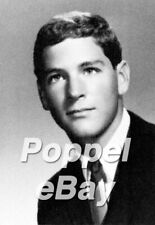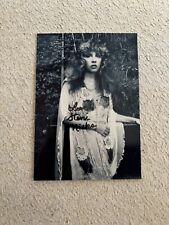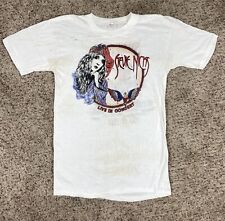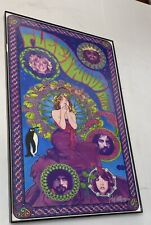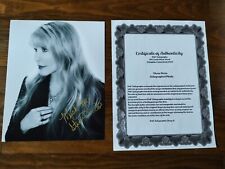|
Splinter Group and Mayall Patriot Ledger (Mass) MUSIC REVIEW Jay N. Miller
THE SPLINTER GROUP , featuring Peter Green , with John Mayall and the Bluesbreakers, at the Roxy Ballroom, Boston, Wednesday night Splinter Group ' puts on splendid show By JAY N. MILLER For The Patriot Ledger Music fans who turned out Wednesday night to hear the legendary Peter Green's return to Boston at The Roxy got to see and hear an enormously talented and versatile British blues-rock guitarist. Only, in this case it was Nigel Watson, one of the co-leaders of The Splinter Group and the man who took most of the guitar leads. Green was a member of the band, and he sang the majority of the tunes. But Green, who was recently voted all-time Greatest British Guitarist by a panel of critics in Mojo Magazine (ahead of Eric Clapton, Jimmy Page and Jeff Beck) played very sparingly, usually comping along with subtle rhythmic support or carefully tinkling through simple arpeggios. Green really didn't cut loose until the last third of the 105- minute show, when he seemed to take playful delight in resurrecting Freddie King's "The Stumble." That was one of his best-loved tunes while he was with John Mayall's band in the 1960s, and Green seemed confident and surehanded for one of the few times all night, crafting inventive variations on the theme that hinted at the massive talent that lay somewhere within. Green of course, was one of the first guitarists with Mayall's Bluesbreakers to really forge new ground in blues-rock, and after that he went on to found Fleetwood Mac. In those early years, Fleetwood Mac was on the cutting edge of blues-rock fusion and not yet the hit-making pop vehicle it later became. By the time the Mac hit the charts, Green was long gone, withdrawn from the music business and the world in general. His problems included a vast loss of self-confidence in his playing, and, as a Boston paper repeated last week, general confusion from excessive LSD use. Eventually, Green was not even playing his guitar any more. Over the past decade or so, Green has slowly been getting back into the swing. This year's "Hotfoot Powder" is his fifth album with the Splinter Group, a quintet of veteran British rock and blues musicians led by Watson and keyboardist Russ Carlton. The 1998 "Robert Johnson Songbook" CD, mainly a Watson/Green duet, won a W.C.Handy award as Comeback Album of the Year. This week's stop of the Green tour marked his first Beantown visit since he played the Boston Tea Party with Fleetwood Mac about 1969. As blues deejay Holly Harris from WBOS introduced the Splinter Group, she emphasized the "historic" aspect of this show, and most of the 600 fans greeted Green like a conquering hero before he played a note. To be sure, the quintet is a fine band, very adept at blues- rock with precision and power, and they all defer to Green at every turn. But Green, appearing amiable but shy, with a knitted cap covering some of his Albert Einstein hair, kept his guitar lines simple and brief most of the evening. Not that his reticence detracted from the night, and a lot of folks may not have even noticed who was playing lead guitar, as long as it sounded good. The show opened with Carlton's tune "Heart of Stone," a midtempo blues-rocker, and Green immediately confounded expectations by singing and playing harmonica throughout. Green's vocals were raw and even cracked in a few places, but their soulful authenticity was heartwarming. Watson's sizzling guitar fired "It takes Time," and although Green's falsetto vocal swoops were mostly off-key, with 600 people cheering his every move he gained momentum. Watson's lengthy solo keyed "Black Magic Woman," with Carlton's surging organ an apt counterpoint. Green added those deliberate arpeggios, and some bar chord rhythms. Finally on "Help Myself," which Watson sang, Green took some lead lines, delivering some stinging, evocative segments. At times like this, when he'd cut through to the heart of the matter in three or four notes, it was both thrilling to witness and maddening when he simply stopped there. On another tune from the new disc, "Steady Rollin' Man," Green's vocal was no less effective for getting hoarser as it went on, and he was relaxed enough to pick out a few improvised leads with Watson. Green provided some really tasty, if brief, slide guitar to "Sweet Home Chicago." An unnamed instrumental after that featured three guitars, as Carlton joined Green and Watson, and with the other two providing solid support, Green created some lovely high register tones. At the tune's end he threw his hands out happily and looked skyward dreamily. That was the appetizer for a treasure of a "Green Manalishi." Green seemed to be having scads of fun with the tune's signature arpeggio, and Watson made it shine with his own visceral leads. That led into the genuinely illuminating take on "The Stumble," and then Green sang some delightfully off-kilter vocals to the slow grinder "The Shake." Green cut loose a bit more on the old staple "Going Down," working carefully in that high register area again and bending notes like he did in '69. As one Boston bluesman noted, "he's not doing much as far as the speed of his playing, but he's still got that great tone; he sounds like Peter Green." The first encore, "Hip Shake Boogie," wasted Green on harmonica, even though Watson and Carlton built a throbbing intensity. The night ended with Elmore James' "Hand Me Down My Walking Cane," with Green taking an extended solo at the end that found him creating some neat melodic twists. Like most of the night it was an intriguing hint of Green's talent. You left the Roxy wondering how much more Green might be able to do but firmly convinced of the Splinter Group's excellence. Mayall's hourlong opening set was a lively and loose affair that helped enhance the night's festive air. The boogie woogie piano showcase, "Streamliner Blues" proved again that the father of the British blues has more energy than any 67-year-old should. Guitarist Buddy Whittington sang and played a firestorm of slide guitar on "Jacksboro Highway," showing anyone who didn't already know that he's a worthy successor to past Mayall six-stringers like Clapton and Page. Mayall's set ended in a version of "Room to Move" that extended his 30-year-old hit to 20 minutes or so, with soaring harmonica solos and a Whittington tour-de-force on guitar that left even this hardcore blues crowd in awe.
|





